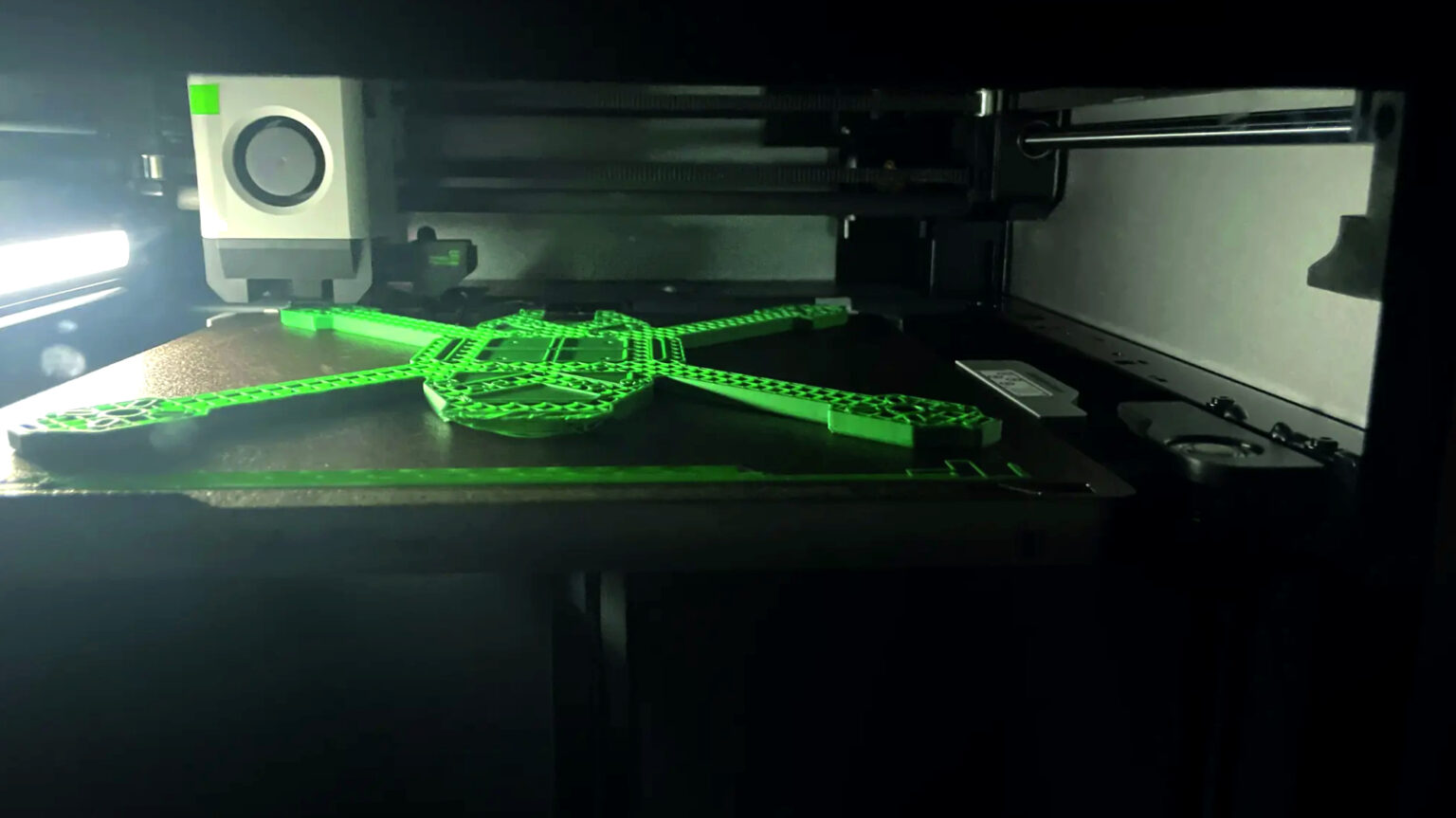
The British Army tested Chinese-made 3D printers to manufacture tactical unmanned aerial systems during a training exercise in Kenya earlier this year, raising questions about security risks linked to Beijing-made technology.
Soldiers from 3rd Battalion “The Rifles” set up portable printers developed by Shenzen-based Bambu Labs under a camouflaged canopy and powered them with a small generator to produce first-person view (FPV) kamikaze drones on-site for simulated strike missions.
The makeshift workshop, built beside a Land Rover, allowed troops to print drone bodies on the spot, while technicians attached cameras, batteries, and circuit boards before launching them near the central Kenyan town of Nanyuki.
The team produced five attack drones and spare parts during the trial, with each airframe taking roughly three and a half hours to print.
Maj. Steve Watts, commanding officer of The Rifles and experiment lead, verified that the army secured special approval to build and fly the platforms.
“I believe it’s the first time anyone in the army has done this,” he said, adding that wider adoption could significantly boost frontline firepower.
Potential Advantages, Risks
The trial showed potential advantages, including lower costs and on-demand production, with each printed kamikaze drone costing about 400 pounds ($525), far below the roughly 2,000-pound ($2,630) price of ready-made models, and could be tailored to specific missions.
He noted that Ukraine’s frontline use of 3D-printed drones demonstrates how quickly custom devices can be produced. “We could print bespoke FPVs now and fly them the same day,” he said.
However, the experiment also saw challenges, such as the printers malfunctioning in extreme temperatures and the need to manage power in field conditions.
Security Fears Over Chinese Hardware
The printers’ origin prompted criticism from defense analysts, who warned the UK risks exposing itself to foreign monitoring under China’s National Intelligence Law, which allows authorities to demand data from domestic companies.
Robert Clark, a defense expert, called the decision “outrageous,” arguing it left gaps in the UK’s security posture.
“We may as well be handing them the keys to the back door of our security systems,” he told The Telegraph.
“This is 100 per cent going to come back and bite the Army and the Government. It is a house of cards waiting to fall down, and when it does it is going to be severe.”
Responding to the concern, the UK Ministry of Defence emphasized that the 3D printers are kept off military networks and there is no evidence that they store information that could be accessed by Chinese authorities.